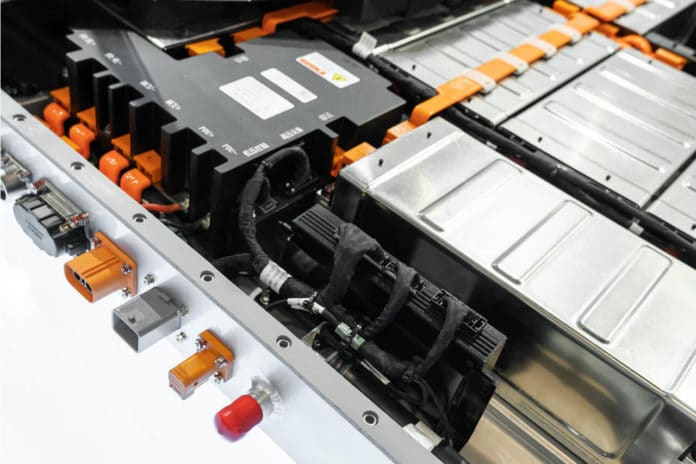University of California San Diego nanoengineers, in collaboration with researchers at LG Energy Solution, have developed a new type of battery that weaves two promising battery sub-fields into a single battery. The battery uses both a solid-state electrolyte and an all-silicon anode, making it a silicon all-solid-state battery.
Theoretically, silicon as an anode can deliver 10 times the energy capacity than the graphite anodes most often used in today’s commercial lithium-ion batteries. In practice, however, lithium-ion batteries with silicon added to the anode to increase energy density typically suffer from real-world performance issues: in particular, the number of times the battery can be charged and discharged while maintaining performance is not high enough. Also, silicon reacts with the liquid electrolytes in the batteries. These challenges have kept all-silicon anodes out of commercial lithium-ion batteries despite the tantalizing energy density.
To address this, the UC San Diego engineers replaced the liquid electrolyte with a sulfide-based solid electrolyte. They also eliminated the carbon and the binders that went with all-silicon anodes, thereby completely eliminating undesired reactions between the anode and the electrolyte. In addition, the researchers used micro-silicon, which is less processed and less expensive than nano-silicon that is more often used.
During the tests, a laboratory-scale full cell delivers 500 charge and discharge cycles with 80% capacity retention at room temperature, which represents exciting progress for both the silicon anode and solid-state battery communities. Their experiments also showed this solid electrolyte is extremely stable in batteries with all-silicon anodes.
According to the researchers, the new battery is safe, long-lasting, and energy-dense. It holds promise for a wide range of applications from grid storage to electric vehicles as solid electrolytes are nonflammable and more stable.
“The solid-state silicon approach overcomes many limitations in conventional batteries. It presents exciting opportunities for us to meet market demands for higher volumetric energy, lowered costs, and safer batteries, especially for grid energy storage,” said Darren H. S. Tan, the first author on the Science paper. Tan is the CEO and co-founder of a startup, UNIGRID Battery that has licensed the technology for these silicon all-solid-state batteries.
